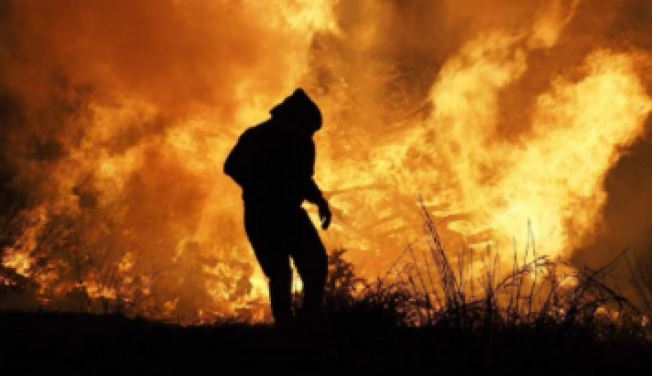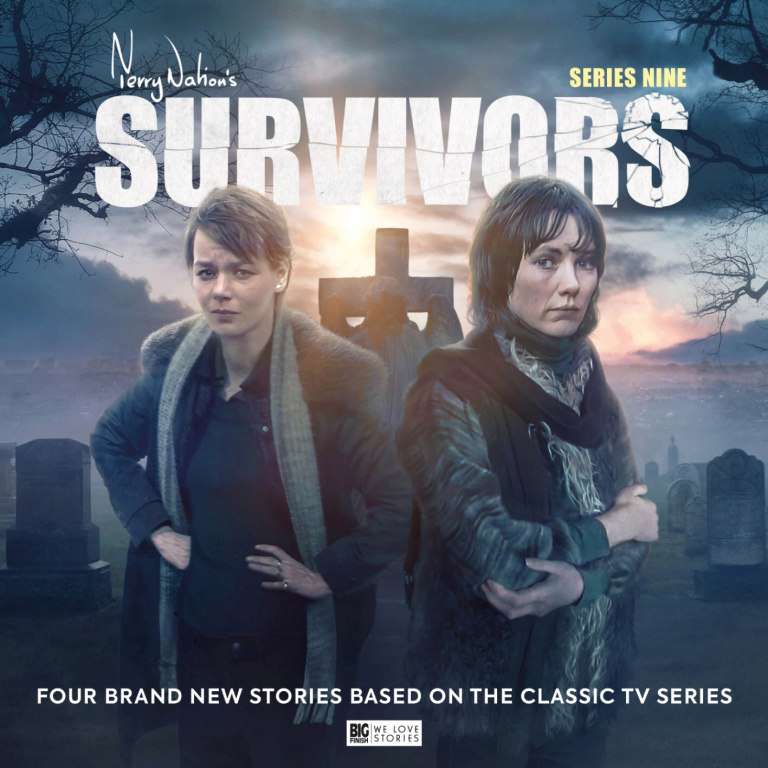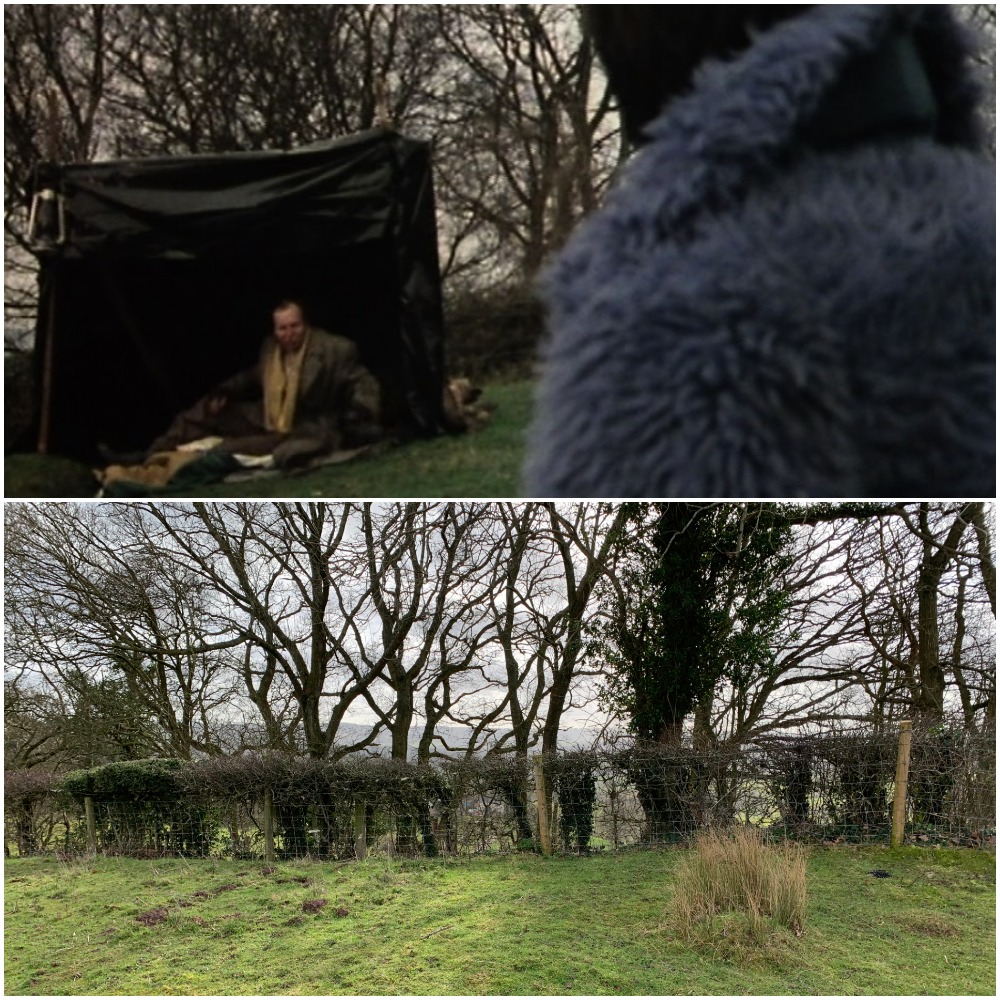
WHEN PETER HILL took the commission to write Survivors: Genesis of a Hero back in 1977, he would have had few expectations that the sequel that he would go on to author would not appear in print and digital formats until more than forty years later.
But the publication of Survivors: Salvation in the spring of 2021 delivers a sequel to that original story that’s both fitting and accomplished. This is a follow-up that feels entirely in keeping with the tone, mood and orientation of Hill’s original novel. It succeeds, in a very concise and focused way, in developing further the alternative Survivors canon established so memorably in Genesis of a Hero.
At the end of that book, Peter Grant had completed his rise through the ranks of warlord Wormley’s militia, bedded his concubine Sarah Boyer, eliminated rivals and opponents on all sides, and finally decamped to the wild counties of Wales, to join the ranks of the fiercely independent Red Dragons. Peter had taken charge of the wild militia in time to defeat the armies of Wormley’s federation in a murderous and fiery conflagration at the famous battle of Llyn Edno.
Hill’s new novel (which appears, as the original did, under the pen name of John Eyers) returns to the fray five years on from that decisive battle, and fifteen years on from The Death. Characters do not refer to the date directly, but the events of Survivors: Salvation unfold in the year 1990 of a parallel Survivors timeline. Now aged 26, and with the backing of his feisty partner Branwen, Peter is responsible for the running of a stable, and fully functioning rural enclave. But the new era of normality he presides over comes at a cost: his followers have begun to relax and, no longer feeling under life-and-death pressure, old factional squabbles have resurfaced which have split the Dragons’ ranks.
Formidable adversary
Peter faces other challenges, besides internal dissension. Back in her base at Windsor Castle, Sarah Boyer has clung to power over the fiefdom that Wormley constructed through brute force and political calculation. Boyer is deciding on the next steps required to cement her grip on power. More than capable of confronting those plotting to oust or dispense with her, she remains a formidable adversary with no intention of surrendering power without a struggle.
What both leaders have increasingly come to recognise as the years have passed is the need to reach some time of accord: a non-aggression pact that might allow the UK to prosper through combined effort rather than divisive conflict. Grant and Boyer have come to realise that any preoccupation with independence and enmity will, in the end, only deliver ruination for all. Future prosperity will require some kind of common collaborative endeavour. (Viewing events from their parallel Survivors world, Charles Vaughan and Greg Preston would fulsomely endorse such thinking.)
This is a follow-up that feels entirely in keeping with the tone, mood and orientation of Hill’s original novel
Rich Cross
While part of Hill’s engaging story focuses on the maneuvering of these two leaders and their respective military forces, the other wholly new element of the book focuses on the emergence of a new and mortal threat to their survival. Revealed through the observations of a traditional travelling family living near the coast, the arrival on UK shores of a murderous, savage group (which young Milla nick-names the ‘Madders’) rewrites the likely future of Britain in blood. This merciless multitude of killers seems hell bent on slaughter and destruction and their advance party cuts a swathe through coastal settlements of Norfolk and pushes inland.
It is the work of Milla in bringing word of the incursion to Peter’s group that is the catalyst for a campaign of armed resistance that might repel the invaders. (It’s interesting to consider the parallels between this concept and Ian McCulloch’s unsuccessful bid to revive the original TV series back in the 1990s: McCulloch’s idea was that post-Death Britain would be subject a form of ‘colonisation in reverse’ by an invading African nation.)
Rapacious invader
The Madders are a terrifying enigma, and Hill evokes the sense of threat that they pose through some chillingly evocative sequences. Hill chooses not to reveal very much about the nature of these new enemies, and the reader learns little about their origins. There’s no sense of their language, culture, leadership or even their ambitions. To a large extent, the Madders appear closer to the idea of an all-consuming zombie horde than a rapacious invader looking to colonise the country. Given the prominence of motifs of ‘the animated undead’ in the current cultural zeitgeist, that’s a pretty perceptive choice by Hill. It also means that he can focus all his attention on his key protagonists without needing to divert attention to the machinations of their new shared enemy.
Any latent tensions between the Boyer and Grant groups have to be set aside in the struggle for survival against an implacable enemy. An extended showdown between the unified forces from London and Wales ends with an unexpected intervention that averts catastrophe. As in Genesis of a Hero, the battlefield is consumed in fire and flame. It’s an outcome that reveals the existence of a previously unknown American military armada, and the persistence of a part of US civilization which escaped the effects of the plague. (The idea of ‘untouched civilisation’ emerging from the shadows is something integral to the 2008-10 BBC TV remake of Survivors. It’s a concept that’s accompanied by the same troublesome considerations that impact on Martin Worth’s evocation of a ‘plague free’ Scottish Highlands in the last ever TV episode Power.)
This is page-turning storytelling, shaped by powerful prose and a strong sense of momentum and drive
Rich Cross
Leaving that question to one side, Hill’s new work ably succeeds as a pacy, action-driven sequel to his 1977 original. As with Genesis of a Hero, the focus here is not so much on the practicalities of survival or on the complex moral choices that the survivors are compelled to make in the post-Death world. This is a book that instead embraces the mood and tempo of an action thriller. Hill uses the dystopian setting as the springboard for a high-stakes confrontation between rival forces each determined to assert control over the UK and redefine its destiny.
This is page-turning storytelling, shaped by powerful prose and a strong sense of momentum and drive. As with Hill’s first Survivors book, those looking for existential reflection, consideration of the place of religious faith in the post-Death world, or detailed studies of the practicalities of self-sufficient commune life are going to be disappointed. But those hoping for an entertaining action romp, delivered with attentiveness and a determination to maintain continuity with what’s gone before, will find much to enjoy and recommend here.
Rip-roaring adventure
As Hill has revealed, Terry Nation made a point of congratulating him on penning Genesis of a Hero and for producing a work in tune with the same themes that Nation himself was enthused by. It’s not difficult to think that Nation might once again have been impressed by Hill’s determination, second time around, to deliver another rip-roaring adventure set in post-apocalyptic Britain. As with Genesis, Hill has taken the decision to focus his efforts on the events inside the UK, rather than on the story of Greg’s and Jenny’s group who, at the end of the original Survivors novel, had arrived on the French coast. Hill’s story implies that other countries across continental Europe might have already succumbed to the Madders’ terror prior to their arrival on UK shores - and that could very well have included France.
The end game of Survivors: Salvation provides readers with a creditable sense of closure. But it does very effectively leave open the possibility of another follow-up. A third book would have no shortage of new themes and ideas to explore (and now on two sides of the Atlantic): including the spectre of a rapacious enemy determined to settle the score (given that it’s the battle, rather than the war, against the Madders that’s been won).
A sequel to the sequel is an enticing prospect, and one made that little bit more likely with every copy of Survivors: Salvation that Survivors’ enthusiasts acquire, and in the process support and encourage Hill’s writing endeavours.
Survivors: Salvation is available to buy, in both paperback and Kindle formats, from Amazon.
Read an interview with author Peter Hill (the writer who uses the pen-name John Eyers).
Cite this web page
Cross, R. (2021). 'Review of Survivors: Salvation by John Eyers,' [online] Survivors: A World Away, 20 May. Available at: https://www.survivors-mad-dog.org.uk/a-world-away/review_of_john_eyers_survivors_salvation.php. Accessed on: 26 February 2026.
Current style: Harvard
TAGS







